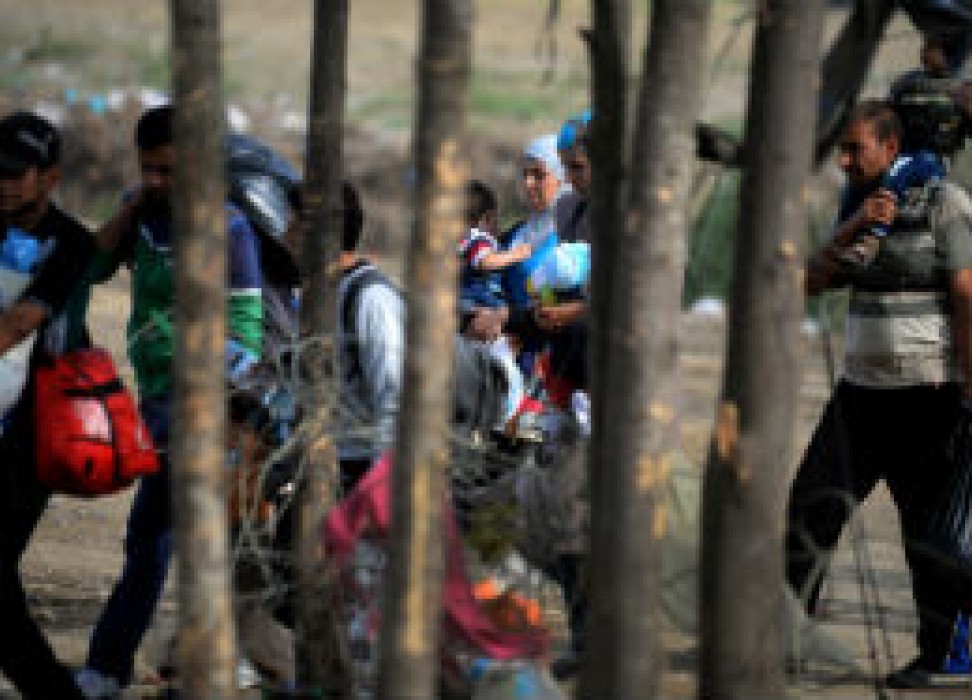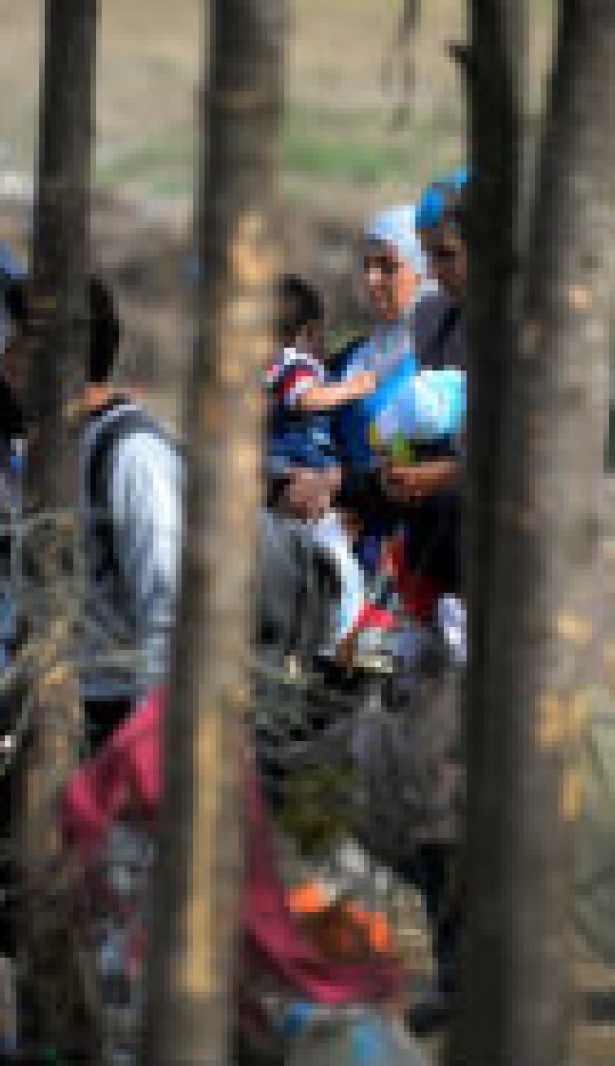People on the move have human rights which require protection
15 September 2015

The rights of migrant workers are routinely violated and even more so when their immigration status is irregular, said UN Human Rights Chief, Zeid Ra’ad Al Hussein.
“Not only are they often denied even the most basic labour protections, personal security, due process guarantees, healthcare and, in the case of their children, education; they may also face abuses at international borders, including prolonged detention or ill-treatment. And in some cases they risk being trafficked, enslaved, sexually assaulted or murdered,” he described.
Zeid was speaking at a panel discussion which marked the 25th anniversary of the convention on migrant workers that not only analysed migration trends, but also sought the views of countries of destination of migration on their response to challenges in protecting migrants’ rights.
With only 48 State ratifications, the standards set forward for the protection of migrants have received little adhesion globally, despite proof that migration has contributed to economic development and ensuring nativity rates crucial to aging countries.
The Director of the Platform for International Cooperation on Undocumented Migrants, Michel LeVoy, pointed out the over 30,000 refugees and migrants have died in their attempt to reach or stay in Europe since 2000. In 2014, more than 276,000 entered the European Union (EU) irregularly, an increase of 159% from 2013. Still, no EU Member State has ratified the migrant worker’s Convention, she stressed.
“Strict family reunification criteria and insufficient regular migration channels are the main determinant to human smuggling,” she said, recalling the image of Aylan Kurdi as a worldwide symbol of a political crisis concerning migration. “The security focus on migration is leading to human rights violations, including the detention of children and the restriction of social services.”
Diego Lorente Pérez de Eulate, of Centro de Derechos Humanos Fray Matías de Cordova Tapachula, in Chiapas, Mexico, also stressed the dire situation of migrant children, in particular in the three countries of the Northern Triangle of Central America (El Salvador, Guatemala and Honduras) as well as in Mexico, that pushed them to endure perils throughout their transit and even upon destination.
Perez de Eulate also mentioned poor rights-based child protection policies and corrupt State structures, poverty, lack of education systems, high murder rates and levels of abuse of children in countries of origin as contributing factors for accompanied or unaccompanied irregular child migration.
On arrival in the United States, migrant children from Central America face almost systematic arrest and deportation without legal process. Children face deportation if they fail to win their case for asylum, and children born in United States can be separated from their family when undocumented parents are deported.
“In 2013, 17,240 were arrested and all were deported; 740 remained in custody of the authorities,” he said. “It is estimated that each year 152,000 American children lose a parent to deportation”.
Mustafa Qadri, of Amnesty International, stressed an urgent need for reform in the Gulf States. The kafala sponsorship system for the recruitment of migrant workers has fostered an environment of forced labour, he said, and the fear of arrest and deportation looms over workers wanting to leave their abusive employers.
“We should therefore pause today not only to reflect on the importance of the Convention to ensuring migrant worker rights, but also the need for continued energy and cooperation to ensure the many millions of migrant workers in the [Gulf Cooperation Council] are given the inherent dignity, respect and protection they deserve.”
State challenges to address the crises
The Philippines is a major country of origin of migrant workers in the Gulf, and, as stressed by the Permanent Representative of the Philippines in Geneva, Cecilia Rebong, one of the first State parties to the convention on migrant workers. Her country, she said, has developed a number of good practices aimed at protecting the human rights of Filipino migrant workers and their families.
Ensuring the candidates for migration had proficient skills, undergo a mandatory pre-departure orientation seminar and enroll in mutual benefit fund, were some of the safeguards they could take. Further, local recruitment agencies had an obligation to secure medical insurance to newly hired overseas workers, and the Philippines have also put in place assistance to nationals in distress abroad. However, effective protection lies in shared responsibilities by countries of origin and destination, the Ambassador stressed.
Peter Sørensen, the Head of the EU Delegation to the UN in Geneva, stressed the magnitude of the challenges currently faced in Europe, recalling that the crisis was more about human beings in need of protection and less about migrant workers. “That raises different obligations but it can never remove the obligation to uphold human rights.”
Sørensen quoted figures from the UN Refugee Agency (UNHCR) which estimates that 320,000 people have set off for Europe by sea. Ninety nine percent of them were safe on European territory thanks to the tripling in April of the EU’s Triton and Poseidon rescue at sea operations.
“While continuing to support the efforts for a political solution of the Syrian crisis – the only real hope for change – the EU remains committed to assisting the countries that are facing most of the refugee burden,” he said. “We all have a duty to go further into our pockets to help those on the frontline, the real victims of conflict and destruction.”
15 September 2015

